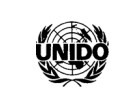As a project of the United Nations Industrial Development Organization (UNIDO), PAMPAT is helping to market "Made in Tunisia" products in both national and international markets. While focusing on harissa and prickly pear products in the first phase of the project, it is now supporting dried tomatoes, processed dates and pomegranate products in the second phase. PAMPAT is funded by the Swiss State Secretariat for Economic Affairs(SECO). It is being implemented in close cooperation with the Tunisian Ministry of Economy, Finance and Investment Promotion, the Ministry of Industry, Energy and Mines and the Ministry of Agriculture, Water Resources and Fisheries.
The focus of the work is to sustainably improve value chains of regionally produced food. For example, one is assisting with product development in Tunisia. "Another approach is to have food processed directly in Tunisia, packaged and marketed as Tunisian products and exported. We support this direct trade by, among other things, promoting origin-based quality labels and advertising the products, including at international trade fairs such as the Anuga currently taking place," describes Nuria Ackermann, Chief Technical Advisor of the PAMPAT project.
According to her, dried tomato and date products offer promising prospects in terms of access to foreign markets, added value
foreign markets, adding value, expanding production and creating jobs in rural areas. Says Ackermann, "Let's take the example of dried tomatoes: Tunisia is a tomato country. Processing them into dried tomatoes creates an additional market segment that is in high demand on international markets. However, the added value does not stay in the country."
 © UNIDO/PAMPAT The Tunisian stand at this year's Anuga.
© UNIDO/PAMPAT The Tunisian stand at this year's Anuga.
Date products as the export product of the future
More than 80 percent of dried tomatoes are shipped from Tunisia to Europe and only packaged and marketed there. "Through this detour via intermediaries, enormous value-added potential is lost. After packaging abroad, the dried tomatoes achieve an increase in value of up to 500 percent," Ackermann continues. Dates are also a typical regional product from Tunisia. Tunisia is known for its Deglet Nour dates. However, dates can also be used to make many other products, such as paste, powder and syrup. "They are still little known in international markets, but there is great potential because alternative natural, healthy and vegan sweeteners are in demand."
At the same time, nearly one in three dates are not suitable for marketing as fresh dates. "And this percentage of 2nd choice dates will increase, as global warming will lower date quality. But with processed dates and the wide range of products, Tunisia has an opportunity to develop a new segment and add value. Through processing, 2nd choice dates can increase in value by five times. Many companies in Tunisia have already recognized this and are expanding their portfolios or new companies are being established."
To promote the export of date products, Tunisia was the first country to introduce a technical standard for date powder. "The private and public sectors worked closely together to develop the standard, and we as PAMPAT supported the drafting process. The standard defines the technical specifications as well as the quality criteria for Tunisian date powder, enabling Tunisian companies to to ensure the required quality and thus guarantee the conformity of the product. In our view, this is an important basis for positioning date powder even more strongly on the international market," says Ackermann.
 At the cooking event on Sunday at Anuga, star chef Julia Komp from Cologne ("Sahila") and Tunisian chef Mourad Fekiri demonstrated the wide range of international and Tunisian dishes based on typical natural ingredients from Tunisia.
At the cooking event on Sunday at Anuga, star chef Julia Komp from Cologne ("Sahila") and Tunisian chef Mourad Fekiri demonstrated the wide range of international and Tunisian dishes based on typical natural ingredients from Tunisia.
Another example, he said, is the commitment to Tunisian harissa, the typical spice paste made from fresh red chili peppers as well as garlic, salt, cumin and coriander. "Since December 2022, harissa, i.e. the know-how of its production as well as the culinary cultural asset, has been on the UNESCO list of the intangible cultural heritage of humanity. In recent years, we have been working with the Tunisian Ministry of Culture and Industry to advance the registration process. We are convinced that this global recognition will help raise the profile of Tunisia as a producer of specialty food products," it concludes.
Visit the company at Anuga 2023: Hall 11.3, Booth D049.
For more information: PAMPAT Tunesien
PAMPAT Tunesien
Lémia Chekir Thabet
Phone: + (0) 216 71 890 340
E-Mail: [email protected]










